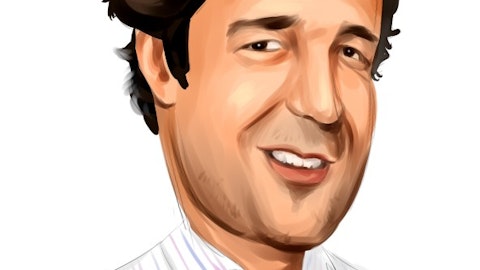Recent filings with the SEC have disclosed that between his direct holdings and indirect forms of ownership such as a controlled LLC and a trust, BlackRock, Inc. (NYSE:BLK) Board member James Grosfeld has recently bought a total of 300,000 shares of the company at prices of about $190 per share. That $57 million investment has been a large increase in his holdings: he now directly owns just over 400,000 shares, and about 100,000 indirectly.
Grosfeld has made other purchases of BlackRock, Inc. stock in the last year: in both this past May and in November 2011, he reported buying the stock in the $160-170 range. BlackRock slightly outperformed the S&P 500 over the last year. Research Grosfeld’s recent and past insider purchases. We like to track insider purchases; insiders should be reluctant to give themselves even more exposure to the same company unless they are very confident in its prospects, and studies to in fact show that they are bullish signs. Read about studies on insider trading.
BlackRock, Inc. recently released its quarterly report for the third quarter of 2012. Its revenues- which primarily come from investment advisory- were up by 4% compared to both the same period in 2011 and the second quarter of the year. Expenses were flat and assisted by a net gain on investments, the company’s earnings came in 15% higher than Q3 2011 and up 17% on a q/q basis. In the first nine months of the year, BlackRock’s revenues have been about flat versus a year ago but lower expenses and higher gains on investments have helped net income edge up 2%. The company is at least holding steady, and the third quarter suggests that it may be seeing an acceleration of its growth.
At a market capitalization of $32 billion, BlackRock trades at 15 times trailing earnings and 13 times forward earnings estimates. That analyst consensus seems fairly modest, and even if there is lower growth over the next year a P/E of 15 is reasonable for such a large company paying a dividend yield of 3.1%. Billionaire Ken Fisher’s Fisher Asset Management initiated a position in the stock during the second quarter, and at the end of June the fund owned 1.7 million shares (see more stock picks from Fisher Asset Management).
BlackRock’s peers include State Street Corporation (NYSE:STT), Legg Mason, Inc. (NYSE:LM), Franklin Resources, Inc. (NYSE:BEN), and T. Rowe Price Group, Inc. (NASDAQ:TROW). In terms of trailing earnings multiples, there is a substantial gap separating Legg Mason and T. Rowe Price from the rest of these companies: their P/Es are in the 22-23 range on that basis. This is a considerable premium to where BlackRock trades, and there hasn’t been anything in these companies’ recent business to support it: Legg Mason’s revenue has been down, while T. Rowe Price saw small increases in revenue and earnings in its most recent quarter compared to a year ago. Wall Street analysts expect a lot of improvement at Legg Mason, and it actually carries a forward P/E of 11.
State Street and Franklin Resources have more modest trailing P/Es of 11 and 15, respectively. At both of these companies, revenue in their most recent quarterly report was down slightly versus a year earlier, though State Street managed to convert that lower top line into a 21% increase in earnings. Franklin also matches BlackRock on a forward earnings basis despite an apparently poorer performing business- we don’t think it is as good a buy. State Street remains a consistently good value at only 10 times forward earnings estimates. If it can continue to grow its earnings- even at a much lower rate than it did in the last quarter- it would be an attractive value play.
A number of BlackRock’s peers trade at similar or higher earnings multiples, even though their businesses have not been doing as well recently. We think that only State Street has a good case to be made for it as an alternative, depending on whether it can show steady growth in the future.






